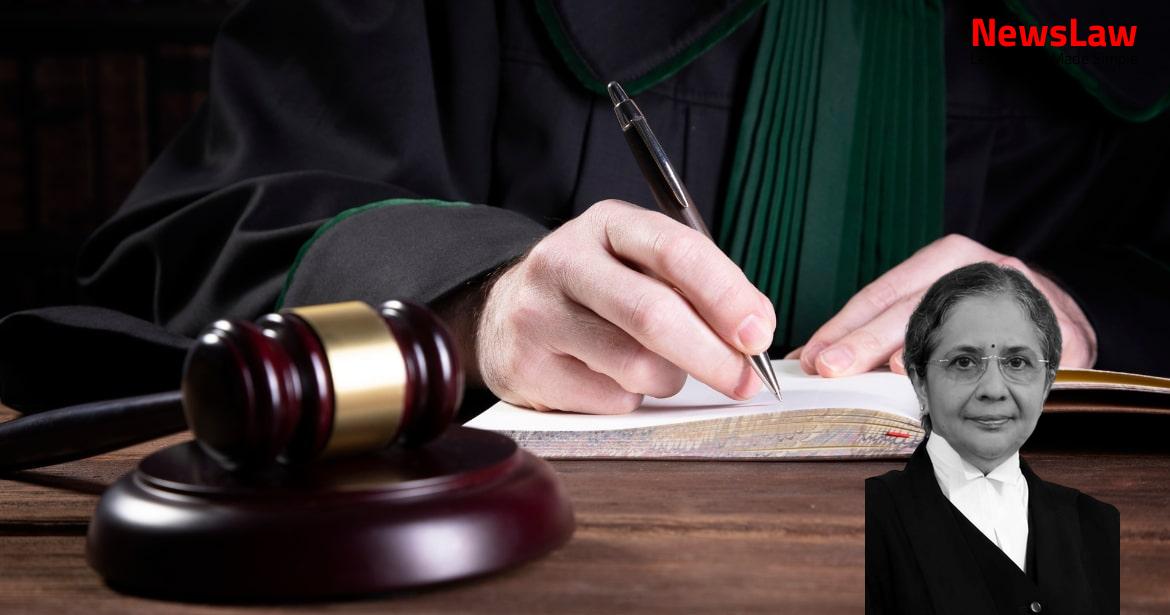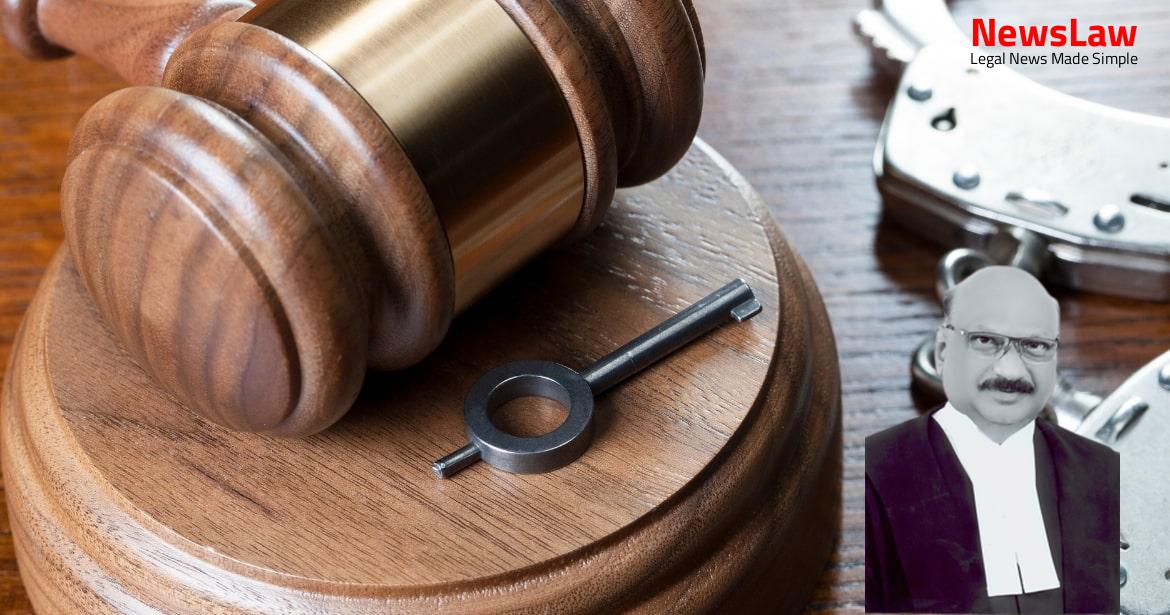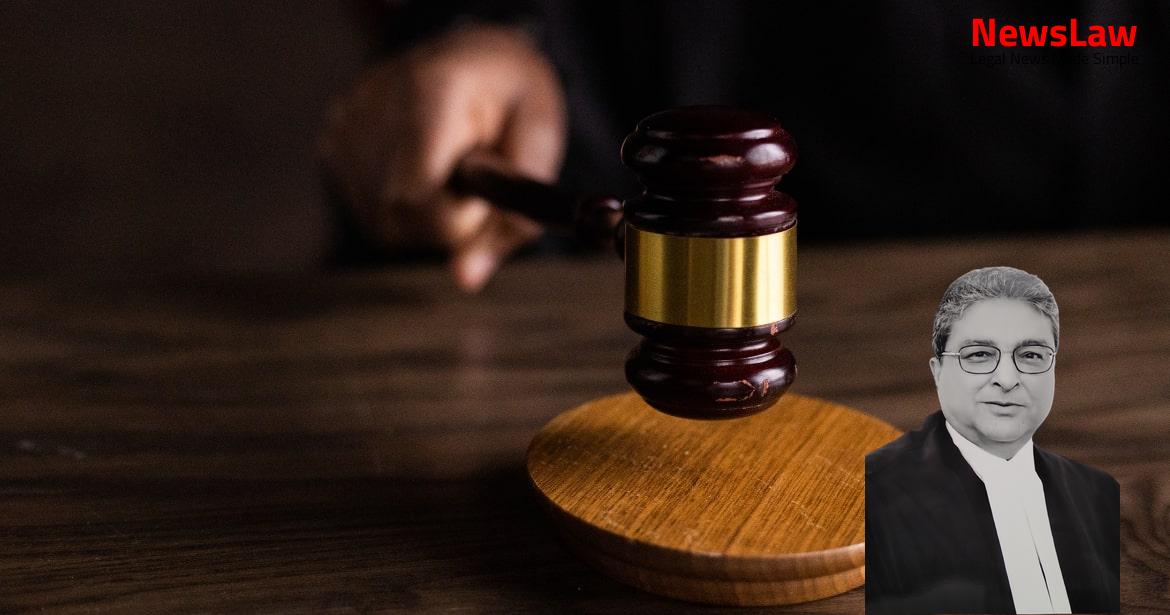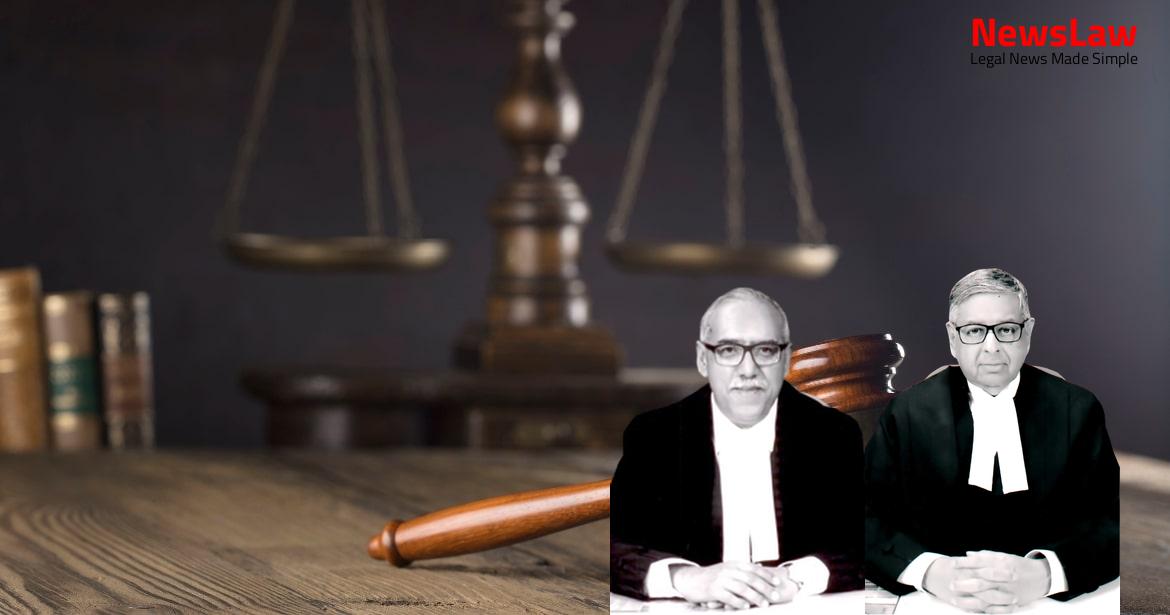In a significant legal case, the Supreme Court of India adjudicated on the matter involving Vetrivel and the State. The judgment focuses on maintaining legal integrity and expediting justice delivery. This ruling is paramount in establishing the principles of fair trials and adherence to legal procedures, ensuring a just outcome for all parties involved.
Facts
- An FIR was registered on 24.11.2009 at Police Station, Dharmapuri against 9 accused for various offenses including murder.
- The accused Vetrivel stabbed Veeramani with a knife on his chest, leading to his death during treatment at the hospital.
- The FIR was filed by defacto complainant ADMK Ravi.
- The Sessions Court framed charges against all accused based on the statements of eyewitnesses.
- The accused sought discharge from the case, but their applications were dismissed by the Sessions Court.
- Accused Vetrivel and others tried to alter the charge claiming they were not present at the scene of the offense.
- Revision Application of Respondent No.2 dismissed by High Court on 05.08.2016
- High Court found sufficient incriminating materials against Respondent No.2
- Sessions Court rightly dismissed application under Section 227 of Cr.P.C.
- Respondent No.2 filed Revisional Application under Section 397 and 401 of Cr.P.C.
- High Court discharged Respondent No.2 despite earlier dismissal of discharge application by Sessions Court and confirmation by High Court
Analysis
- The revisional jurisdiction of the higher court is limited and should not be exercised routinely.
- Interference in interlocutory orders should be sparingly done unless there is gross error, non-compliance with the law, lack of evidence, or arbitrary exercise of discretion.
- The order dismissing an application for modifying a charge falls under interlocutory orders and cannot be challenged under Section 397 of Cr.P.C.
- The court must be circumspect in interfering with the order framing the charge and should not scrutinize orders that seem to be carefully considered and in accordance with the law.
- Section 397 of the Code grants the court the authority to review records of lower courts to ensure legality and regularity of proceedings or orders.
- The purpose of this provision is to rectify any evident defects, errors of jurisdiction, or legal mistakes.
- The aim is to correct any clear issues in a case for the sake of justice and adherence to the law.
- Section 216 enables the court to alter or add to any charge before judgment is pronounced.
- The accused cannot file a fresh application seeking discharge after the charge is framed and a previous discharge application has been dismissed.
- Filing such applications to delay proceedings is highly deplorable and should be dealt with sternly by the courts.
- In this case, the accused failed to get discharged in the first round but filed another vexatious application under Section 216 to derail the proceedings.
- The High Court, on extraneous considerations, set aside the charge framed by the Sessions Court, which was legally untenable.
- The High Court’s decision is ungrounded, illegal, untenable, and lacks support from the record.
- The said order deserves to be set aside.
Also Read: Supreme Court Judgment: Bank’s Obligation under MSMED Act vs. SARFAESI Act
Decision
- The appellant’s appeal is allowed with a cost of Rs. 50,000 to be paid by Respondent No. 2 within two weeks
- Non-cooperation of any accused in the trial will result in bail cancellation
- Respondent No. 2 has been filing frivolous applications, derailing the proceedings
- The Sessions Court is directed to proceed with the trial against all accused, including Respondent No. 2
- All parties must cooperate for an expeditious trial
- The office will ensure compliance with the cost payment, with non-compliance to be reported to the Court
Also Read: Commercial Purpose Determination in Car Purchase: Supreme Court Judgement
Case Title: K.RAVI Vs. THE STATE OF TAMIL NADU (2024 INSC 642)
Case Number: Crl.A. No.-003598-003598 – 2024



